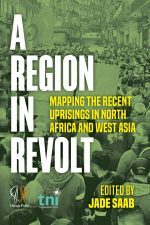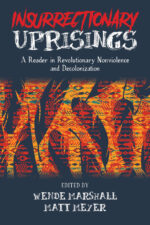Soon after its publication in 1972, Walter Rodney’s How Europe Underdeveloped Africa gained global popularity among students, scholars, activists and people concerned with African affairs. His innovative application of the method of political economy transformed the paradigm for rendition of the continent’s past. Because it stridently took the traditional historians and the prevailing neo-colonial order to task, it was also pilloried by the defenders of the status quo. And, in these neoliberal times, mainstream scholars and pundits proclaim that it is no longer relevant for Africa.
In Walter Rodney: An Enduring Legacy, Karim Hirji makes a systematic case that, on the contrary, Rodney’s seminal work retains its singular value for understanding where Africa has come from, where it is going, and charting the path towards genuine development for its people. After giving a broad picture of Rodney and his times, Hirji examines in detail the criticisms levelled against his work, and conducts a focused review of modern day textbooks on African history. It is seen that most of the claims against Rodney lack a sound basis and that direct representations of his ideas are replete with distortions, unfair selectivity and political bias. Yet, the long term influence of Rodney on African history is unmistakable.
Hirji’s succinct, coherent defence of an intellectual giant who lived and died for humanity is an essential read for anyone with an interest in Africa and related regions.










Gabriel Kuhn
Besides prominent Black anarchists such as Lorenzo Kom’boa Ervin and Kuwasi Balagoon (whose main works – Anarchism and the Black Revolution and A Soldier’s Story: Revolutionary Writings by a New Afrikan Anarchist, respectively – have recently seen new editions), Atticus Bagby-Williams and Nsambu Za Suekama discuss radical Black theorists such as Frantz Fanon and Cedric Robinson. The engagement with the latter is of particular interest, as Robinson is mainly known for his work on Black Marxism. However, the subtitle of Robinson’s main work, Black Marxism: The Making of the Black Radical Tradition, suggests why Atticus Bagby-Williams and Nsambu Za Suekama would find it useful to relate Robinson’s studies to the emergence of Black anarchism. By doing so, they are making a very valuable contribution to the history of radical thought.
In their concluding chapter, “Toward Black Autonomy,” Atticus Bagby-Williams and Nsambu Za Suekama write that “contributions of Black anarchist politics will be vital towards building a more liberated post-capitalist world.” This, without doubt, is true. Track down a copy, read, and learn. — Gabriel Kuhn: LeftTwoThree https://lefttwothree.org/anarchism-and-the-black-radical-tradition/